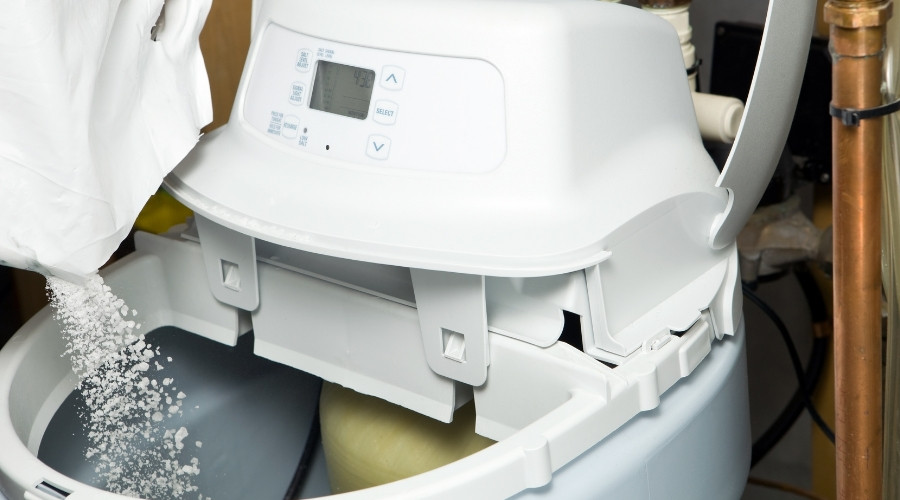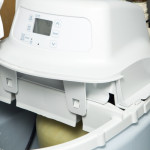Signs of Hard Water and Water Softeners Explained
Wondering if a water softener installation is the right move for a household? When stubborn limescale, spotty glassware, and dry skin keep showing up, hard water is often the cause. This overview highlights the key signs that mineral-heavy water may be affecting pipes and appliances, and explains how a water softener or water softening system can help restore cleaner, more comfortable water. Explore the indicators that suggest an upgrade could be worthwhile.
Signs Indicating Hard Water
 Recognizing hard water symptoms makes it easier to decide if a water softener installation is necessary. Water quality impacts personal care, cleaning routines, and the longevity of fixtures and equipment, so catching the clues early helps avoid preventable damage.
Recognizing hard water symptoms makes it easier to decide if a water softener installation is necessary. Water quality impacts personal care, cleaning routines, and the longevity of fixtures and equipment, so catching the clues early helps avoid preventable damage.
Common personal indicators often appear first. Dry, tight skin and hair that feels brittle can result from mineral residue left behind during bathing. In the kitchen, dishes may emerge from the dishwasher with white spots or a cloudy film even after a thorough cycle, signaling the presence of hard minerals.
Throughout the home, hard water leaves visible traces on plumbing and surfaces. Chalky buildup around faucets, showerheads, and appliance connections becomes harder to remove over time. Laundry can look dull and feel stiff as minerals interfere with detergents. Inside pipes, scale accumulation gradually narrows pathways, which may reduce flow at fixtures and strain water-using appliances. A pattern of declining water pressure, frequent cleaning, and persistent residue typically points to the need for a targeted water softening solution.
How Does a Water Softener Work?
A water softener system improves water quality through ion exchange, the core process behind most modern water softening approaches. Inside the mineral tank, a bed of resin beads is designed to capture calcium and magnesium as water passes through. In return, the beads release sodium ions, producing softened water that moves on to fixtures and appliances.
This exchange happens continuously during normal use. Over time, the resin bed reaches capacity and must be refreshed. During regeneration, a brine solution rinses the tank, carrying away collected hardness minerals and recharging the beads so the water softening system can continue operating effectively. Many units manage regeneration automatically based on usage, helping maintain steady performance with minimal oversight. Whether installed as a stand-alone water softener or configured as part of a broader water treatment setup, the principle remains the same.
Benefits of Whole Home Water Softeners
 Installing a water softener system can elevate water quality and reduce the impact of scale throughout the property. Softened water helps minimize mineral deposits on plumbing and fixtures, making everyday cleaning simpler and helping equipment like dishwashers, washing machines, and water heaters operate more consistently.
Installing a water softener system can elevate water quality and reduce the impact of scale throughout the property. Softened water helps minimize mineral deposits on plumbing and fixtures, making everyday cleaning simpler and helping equipment like dishwashers, washing machines, and water heaters operate more consistently.
Daily routines often feel easier with a comprehensive solution in place. Dishes and glassware tend to look clearer, shower doors and faucets resist buildup for longer, and laundry commonly feels softer with colors that stay brighter. Many households also notice that soap and shampoo rinse more completely, supporting more comfortable skin and manageable hair.
For complete coverage, a whole home water softener or whole house water softener treats incoming water at the point of entry, supplying softened water to every tap. By addressing hardness before it reaches pipes and appliances, a properly selected water softener or water softening system supports comfort, reduces maintenance demands, and helps protect the home’s investment in its plumbing network.
About Roman Plumbing and Air Inc.
Roman Plumbing and Air Inc. provides full-service residential and commercial plumbing and cooling solutions in New Port Richey and the surrounding areas. They believe in clear communication, respect for homes and property, and getting the job right the first time. Call them today to schedule Water Softener Services in New Port Richey, FL.















